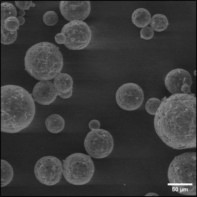By Tushna Commissariat
Spintronics is often touted to be a field of research that one day soon will revolutionize computing as we know it, helping build the next generation of superfast and energy-efficient computers that we long for. Future spintronic devices will tap into the inherent spin magnetic moment of the electron, rather than just its charge, to store and process information. As an electron’s spin can be flipped much quicker than its charge can be moved, these devices should, in theory, operate faster and at lower temperatures than their current electronic-only counterparts.

The entire basis of this field is built on research done by Soviet-American theoretical physicist Emmanuel Rashba in 1959. Indeed, he was the first to discover the splitting of the spin-up and spin-down states in energy and momentum with an applied electric field instead of a magnetic field. But Rashba’s original article detailing the effect, written together with Valentin Sheka, was published in a supplement of the Soviet-era, Russian-language journal, Fizika Tverdogo Tela, and is nearly impossible to get a hold of today.
New Journal of Physics (which is published by IOP Publishing, which also publishes Physics World) has now produced a focus collection of articles on the Rashba effect. As a part of this collection, guest editors Oliver Rader of the Helmholtz Centre Berlin, Gustav Bihlmayer of the Jülich Research Centre in Germany and Roland Winkler of the Northern Illinois University in the US worked with Rashba to create an English-language version of his original paper.
You can access the entire “Focus on the Rashba Effect” collection here, and the translated original paper here. In some ways, this highlights the importance of other key research articles that may have been published in journals that are no longer available and so may be in danger of being lost forever. Leave us a comment if you can think of any such papers.


